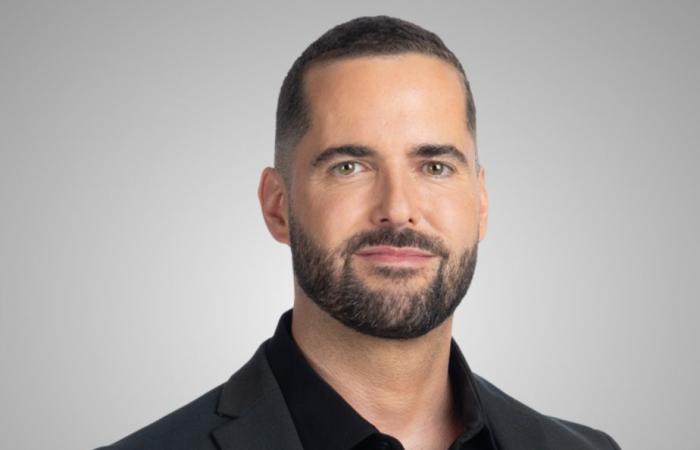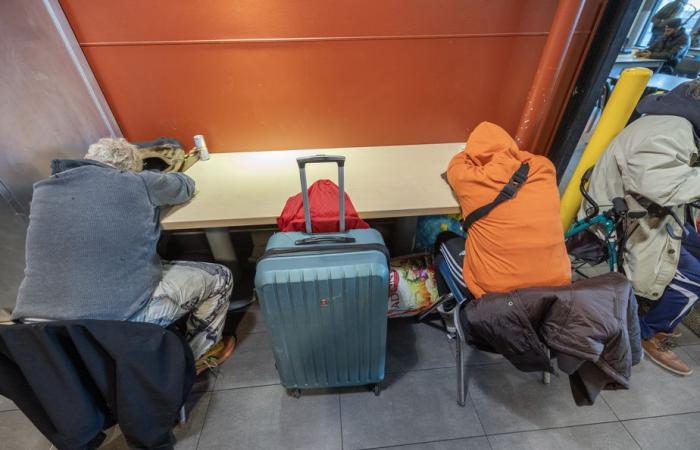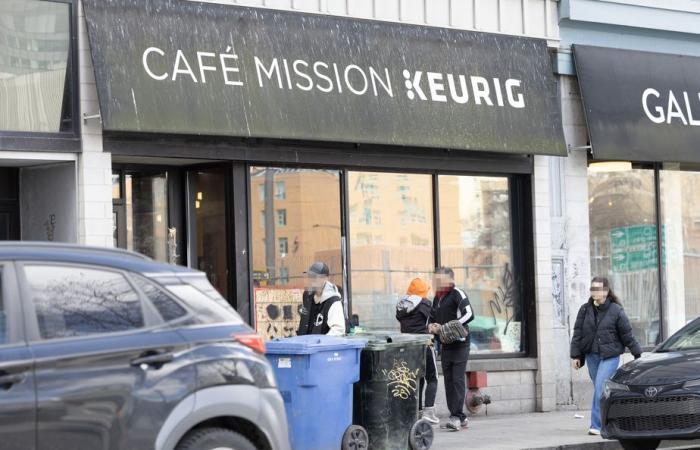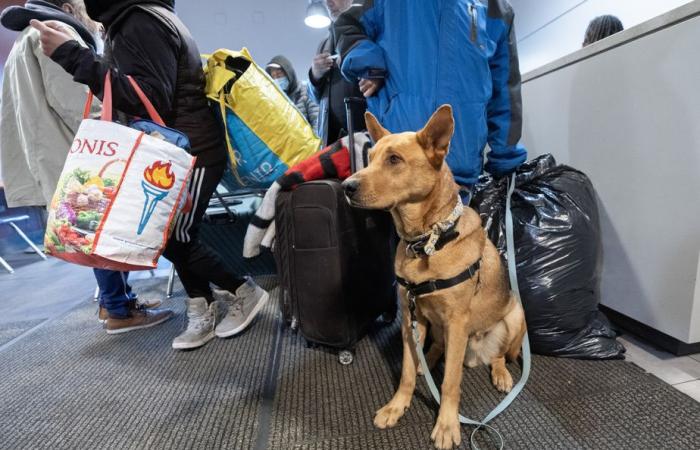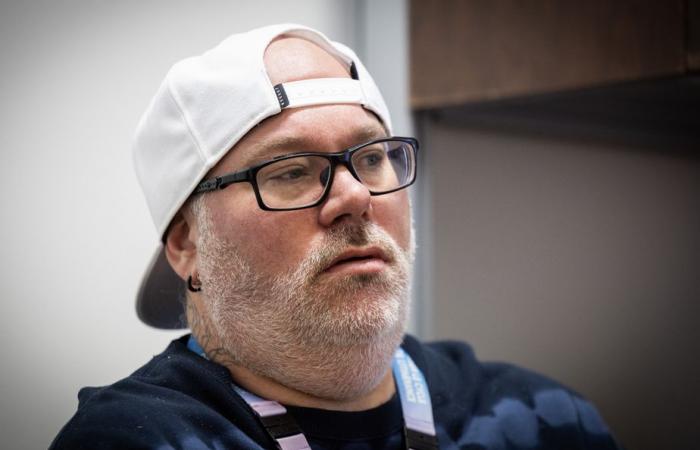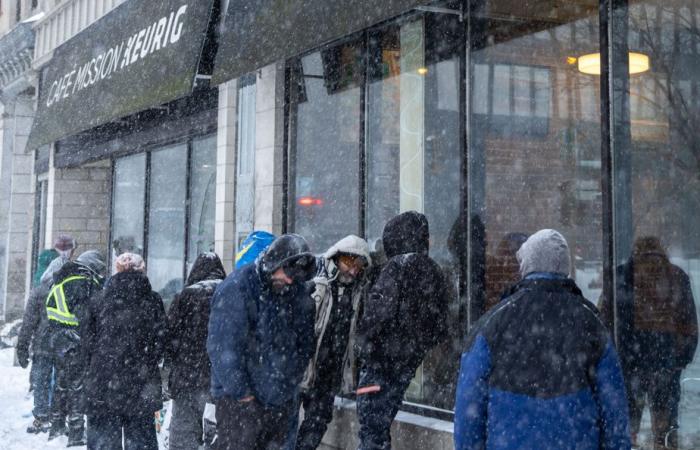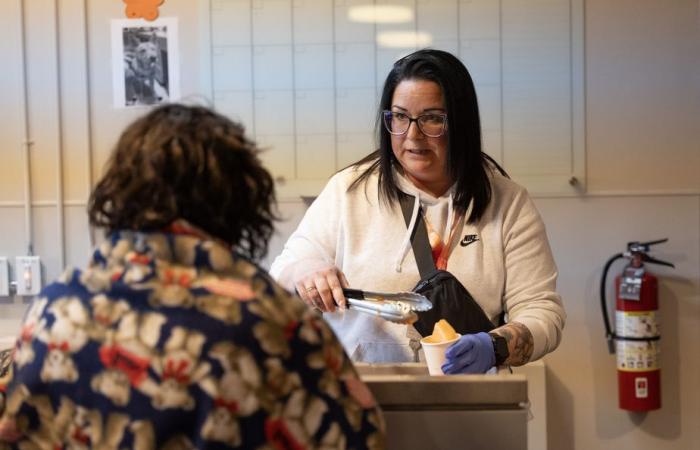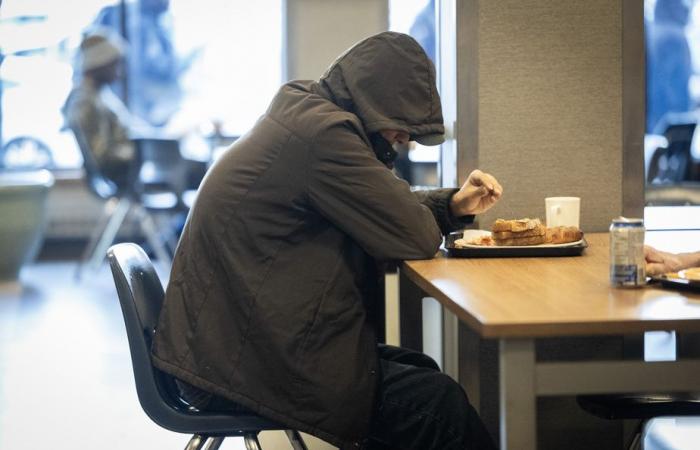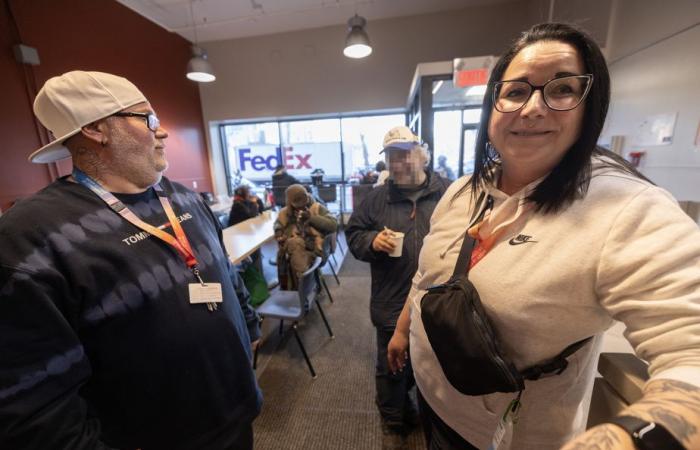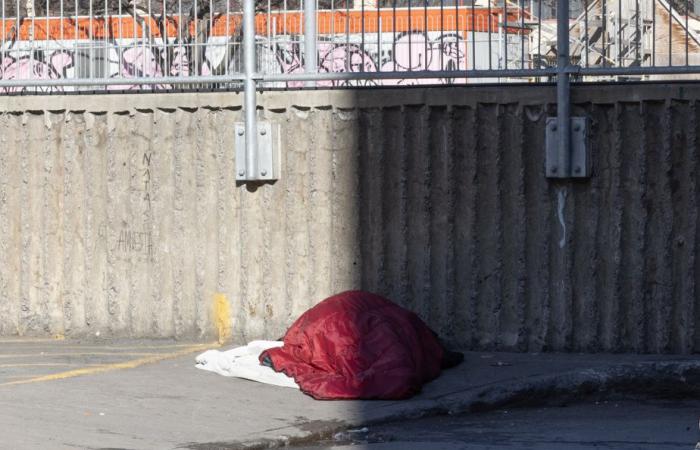“If you come here for the pay, you don’t tougheras not. »»
Posted at 5:00 a.m.
Here’s how Benoît Berthiaume summed up his job to me. He just finished his long and hectic quarter, when I met him in the early morning.
By her side, Karine Racette, her partner of the last 25 years, gained me a speech in the same waters.
“It is a vocation. »»
Evening after evening, the couple left Salaberry-de-Valleyfield, 65 kilometers from Montreal, to come and work at the Café Mission at night. It looks a bit like the Ground Zero of all the miseries of the Metropolis.
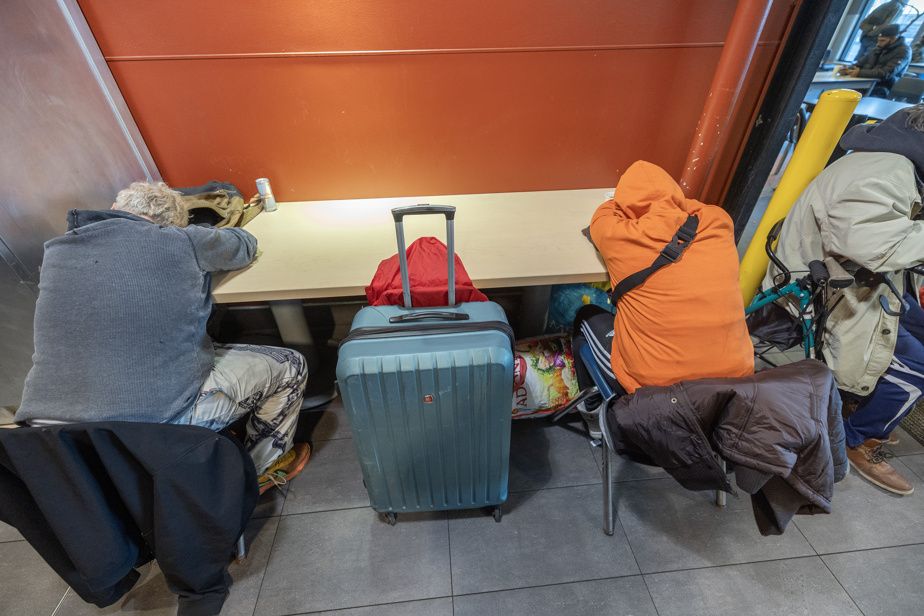
Photo Patrick Sanfaçon, La Presse
The homeless take advantage of a moment of rest at the Mission Café.
If you frequent Boulevard Saint-Laurent, you may have already noticed the place. It is located on the ground floor of a pavilion of the Old Brewery mission, one of the biggest shelters for traveling people in the metropolis.
There are 180 beds, on the floors, for those who manage to find a place there. But the Café Mission is accessible to everyone, 24 hours a day.
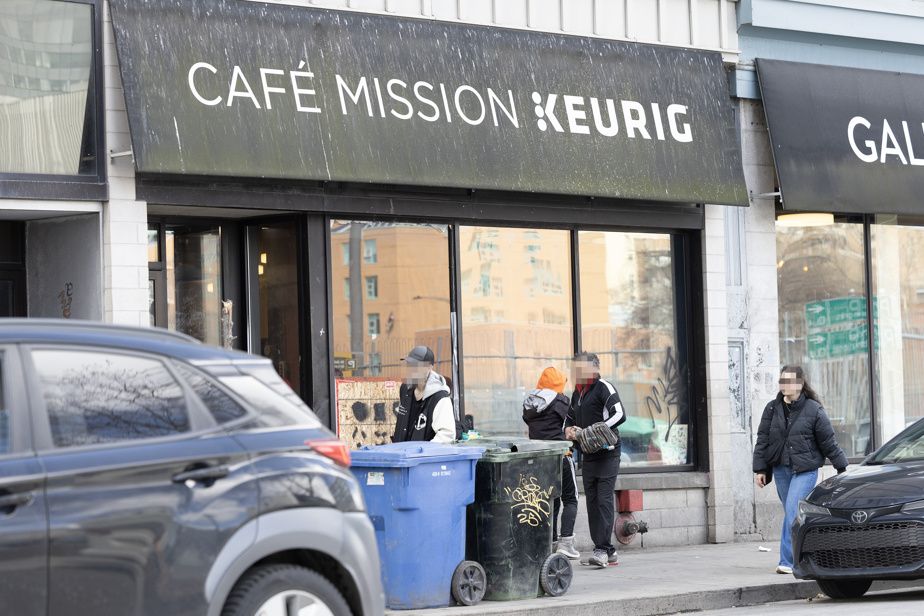
Photo Patrick Sanfaçon, La Presse
The Café Mission is accessible to everyone, 24 hours a day.
And it’s not a figure in style.
Everyone is welcome: people in psychosis, intoxicated, aggressive – except those who are ultraviolet and clearly dangerous -, or those accompanied by a dog. The most marginalized of all the homeless, which we refuse almost everywhere else.
For many of them, this is the only place in town where they can land, at least the time of a hot drink and a snack.
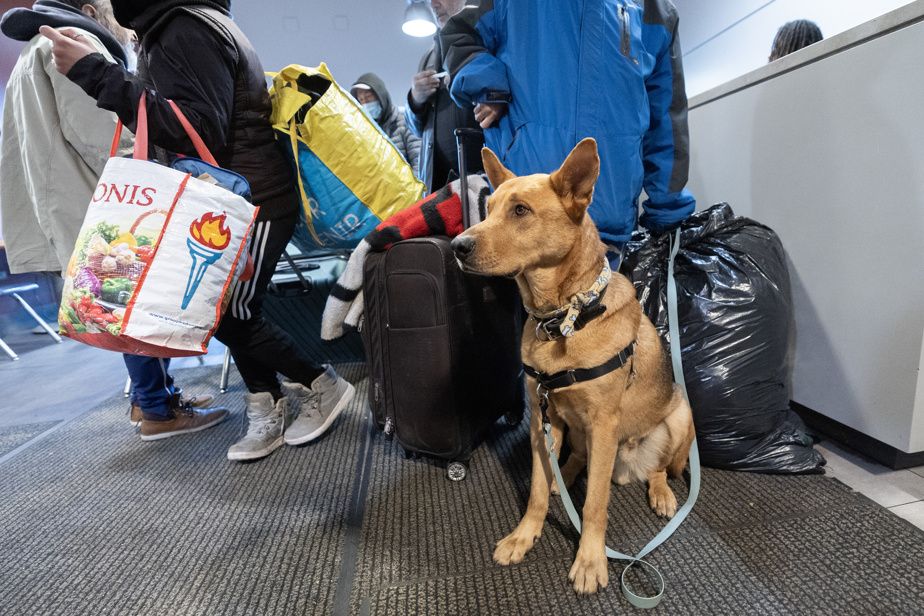
Photo Patrick Sanfaçon, La Presse
Not all shelters accept dogs, an essential criterion for some people in homelessness
I was curious to know the motivations of these “shadow” workers who roll the machine. The people of Old Brewery presented two for me for the price of one: Karine and Benoît.
“You can’t come and work back to Café Mission,” explains Benoît to me. You’re going to be insulted, spit on it, attack. You have to be ready for that. »»
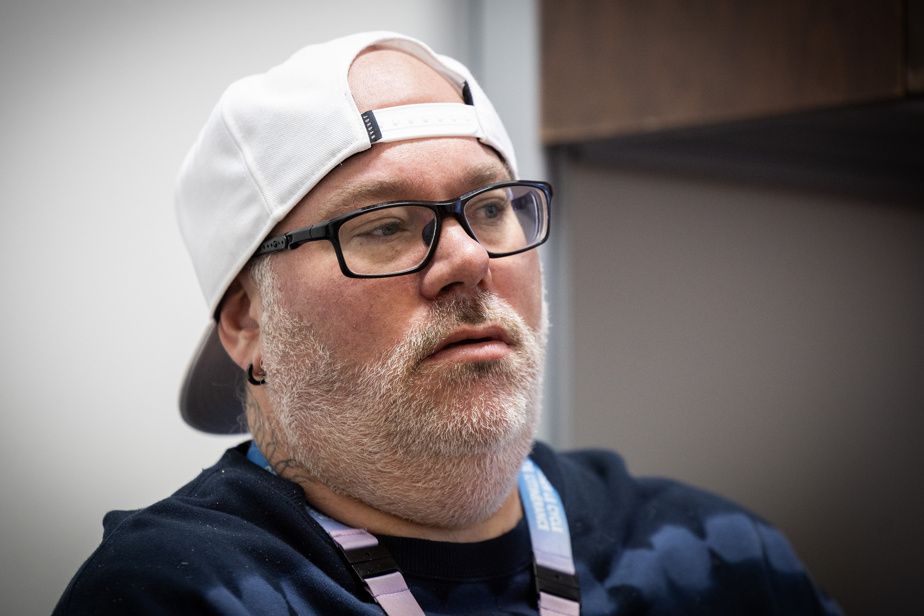
Photo Patrick Sanfaçon, La Presse
Benoît Berthiaume
The 47 -year -old man is one of the three or four employees present at all times on the floor. Its title, “proximity speaker”, cannot be more appropriate, given the narrowness of the premises.
Among his tasks, he must manage traffic at the entrance. Like a bouncer of the last chance.
It is not unemployed: demand is growing constantly. More than 87,000 people attended coffee last year, compared to 70,000 in the previous year.
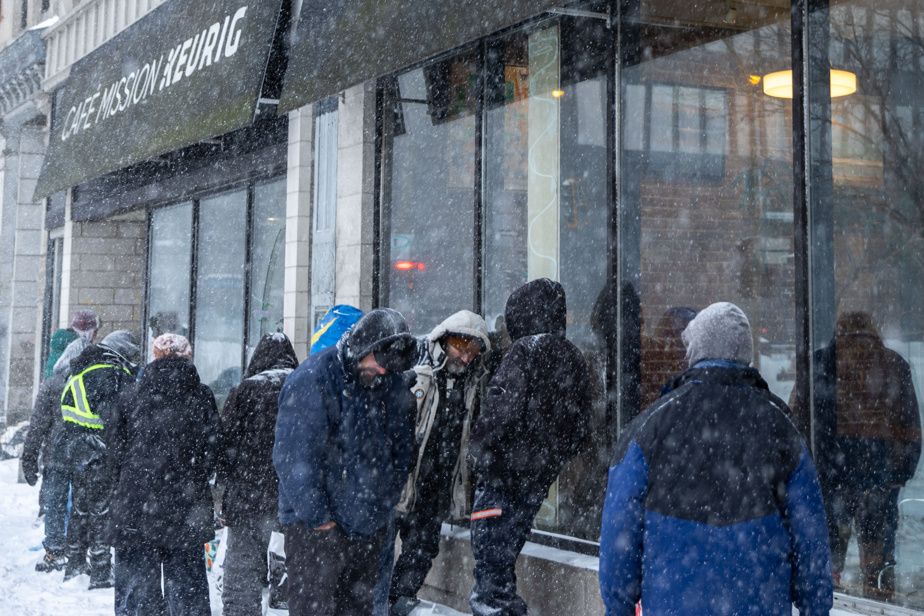
Photo Josie Desmarais, Archives La Presse
Sans-Abri queue in front of the Café Mission, last February.
A logistical puzzle, with only 55 places available. It overflows most of the time.
The skirmishes are frequent, confirms Benoît. “You have to expect this every day: there is one who will be angry, who will treat you with all kinds of names, which will push you because he cannot go back, because there, we are complete. »»
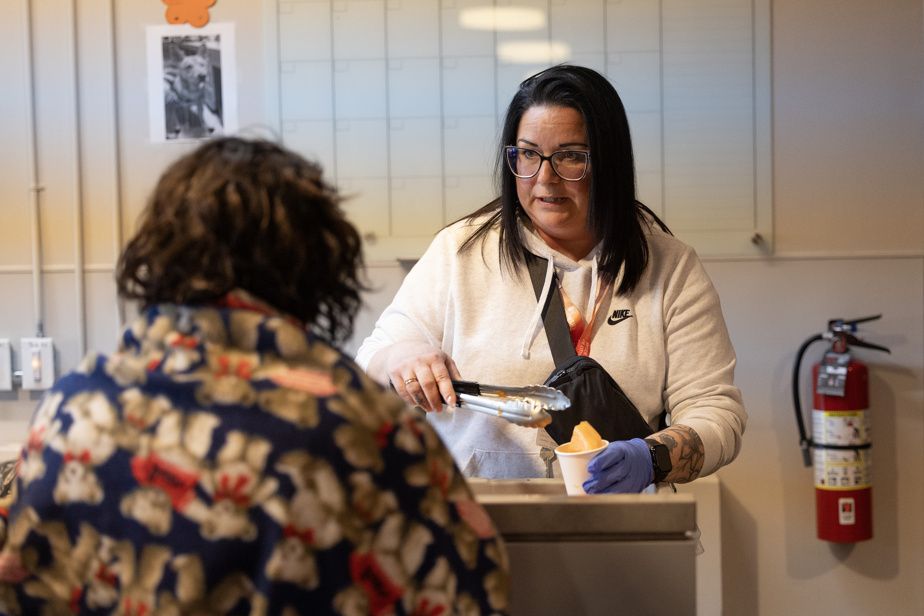
Photo Patrick Sanfaçon, La Presse
Karine Racette
Karine is working in psychosocial follow -up. It acts as a reassuring presence with coffee visitors, but also as a privileged point of contact to orient them towards medical services. A kind of “one -stop shop” on two legs.
“We all know them by name, and we know their story, their life a bit. We know that such or such had an appointment. We ask them, “Have you gone to look at your leg? Your knee?” We create a link, we become a bit of their family. »»
More and more new faces sneak through regulars. In the lot: violence, young people from the DPJ, asylum seekers, freshly released prisoners, victims of renoviction.
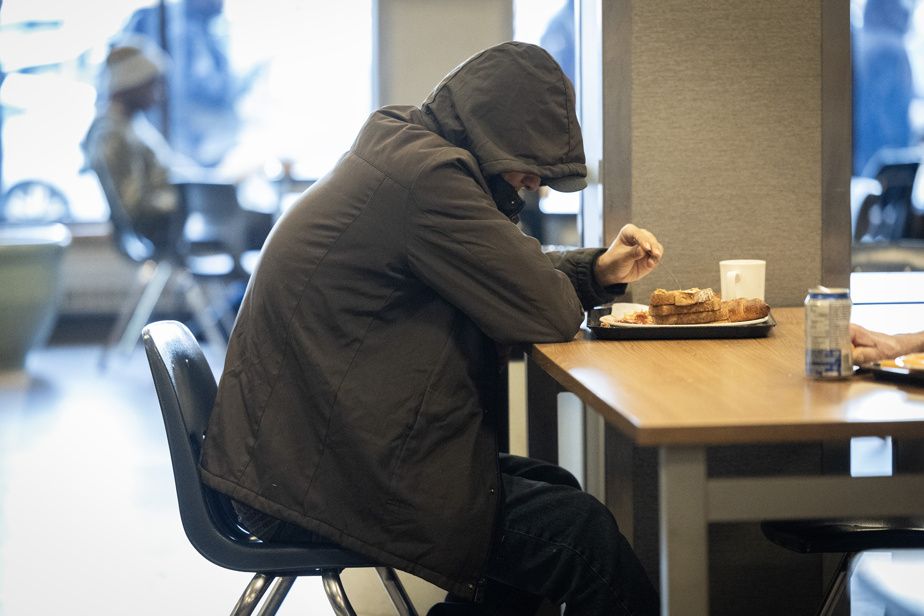
Photo Patrick Sanfaçon, La Presse
More than 87,000 people attended coffee last year.
Mental health problems are legion. They are tenfold by ever more toxic drugs: crack, crystal methfentanyl.
You have to have your eyes all around the head, from the first to the last minute of the quarter work. Anticipate crises and blows. Practice a strategic “distance” at the right time. Use “de -escalation” techniques.
Humor and empathy are two precious tools. “The smile is worth gold,” said Karine.
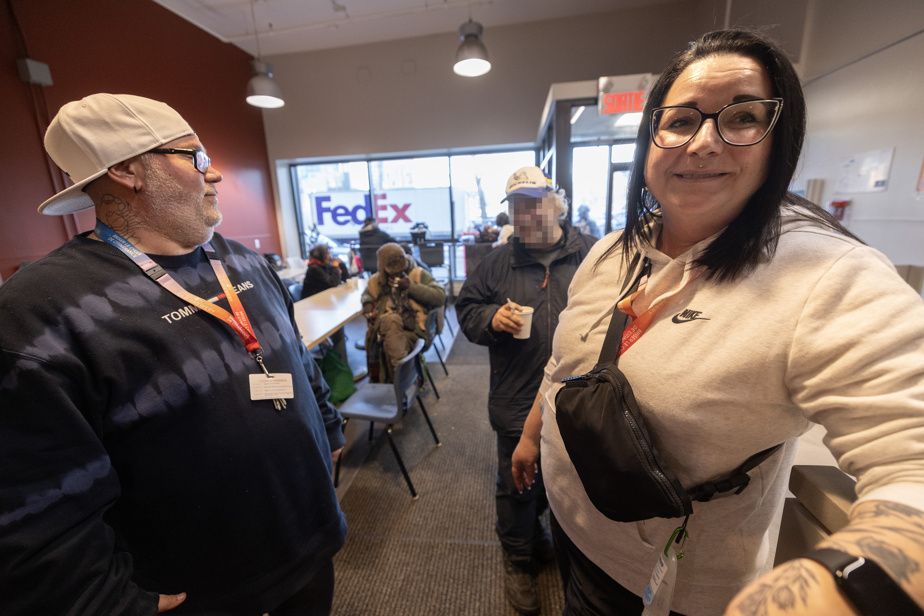
Photo Patrick Sanfaçon, La Presse
Benoît Berthiaume and Karine Racette consider a small difference in a crisis out of control at the end of each quarter of work at the Café Mission.
“People don’t look at them on the street. What they often tell us, what hurts them is ignorance. At one point, they no longer know what to do or where to go, because they cannot go to the metro, they get park. They are put outside… ”
Several workers in the community are out of breath, underpaid, disgusted with the chronic lack of resources.
Karine and Benoît consider themselves “very well treated” by their employer. The union members of the Old Brewery mission are paid between $ 24 and $ 30 an hour, in addition to night premiums.
But the salary, for Karine and Benoît at least, is calculated more than than dollars. They are convinced, at the end of each quarter of work, of having made a very small difference in a crisis out of control.
“We feel that we have at least helped a person, whether just because we have chatted with her,” said Karine. Before she talks to us, she had dark ideas, then she left with a smile. Just with that, we just won. »»
Benoît is still marked by this lived experience a few months ago. He managed, after long minutes, to revive a woman in cardiorepiratory arrest, extended on the floor of the coffee.
“You arrive at home and you say to yourself: it’s special.” I did not go to deliver radiators today, as I did before. »»
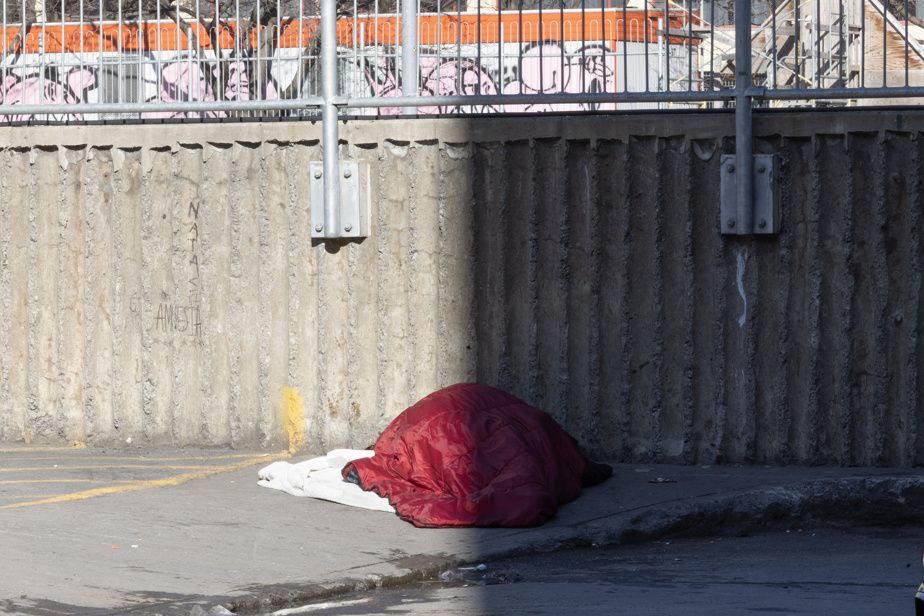
Photo Patrick Sanfaçon, La Presse
A homeless man lying outside the Old Brewery mission, one morning in April
Two of the three big children of the couple walk in their footsteps. Their 19 -year -old daughter and their 23 -year -old guy are mental health workers, in intermediate residences. A beautiful transmission of values.
There are also success stories that push the couple to continue. Like that of Paul, 59, crossed on the spot.
The former homeless managed to regain control after three detox cures and many visits to the Old Brewery mission. He has lived for two years a housing in Ahuntsic, in the north of the city. But he continues to come and have a coffee here every day, he told me, to see “the staff” that he loves and break his isolation.
“My story started here, and it continues here. »»

